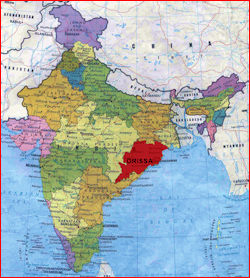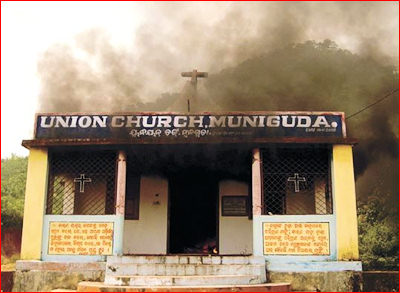Why yes: since it came up in Christianity Today yesterday, I do actually have some more to say about Louie Giglio.
Before we get to the torches and pitchforks, let me say this: in the last 20 years, Louie Giglio has been a very nice guy. He has even been, from time to time, a preacher with some flair -- the right kind of flair and not just metaphorical or photoshoptical lens flair. If we should give a man a little grace because of his lifetime of work, I give it here to him for that. Overall: nice work.
That said, this showed up on my FB timeline yesterday:
Of course it's the caption that caught my eye there, which was supplied by the culture vultures* over at Christianity Today. Giglio got something right, according to Mark Galli. Here's what he says:
Giglio noted his priorities when he said, "Clearly, speaking on this issue [homosexuality] has not been in the range of my priorities in the past fifteen years. Instead, my aim has been to call people to ultimate significance as we make much of Jesus Christ." Giglio is exactly right. Unfortunately, in a desire to reach the world for Christ, some inadvertently reverse Giglio's priorities and make much about our ultimate significance. Jesus becomes merely the means by which we feel better about our place in the universe. Need purpose and meaning? Follow Jesus, that will do the trick. In this subtle shift, we become the first and the last, the Alpha and the Omega.Wow -- So close! So close! What you would hope, as he says this, is that Galli would have someplace else come up with the Gospel to somehow season Giglio's idiosyncratic post-Piper rhetoric into something which does make this exactly right. For example, maybe Galli would talk about the dire state of our sinful culture -- how sinfulness is actually the signature of this world, and that Christ's death is the only action possible to overcome it.
Well, "sin" apparently doesn't come into it -- not in this essay, anyway. And when referring to "sinners," Galli -- a Fuller grad -- has this to say:
In the long run, we cannot gain a hearing for the gospel through our admirable ethics or social justice because in the end, we are still sinners, with hearts, as the prophet Jeremiah put it, that remain desperately wicked (Jer. 17:9). When we do live well or accomplish a social good, we will be admired for our moral success, not because Jesus died to save a rebellious world. And when we fail to live up to our values—and we invariably will--well, we will look like every other sinner on the planet. Not much of a witness there, except to our humanity.See: the problem of being a sinner is the church's problem, not the world's problem -- though credit where credit is due that he does reprimand the social gospel as somewhat impotent. The other mention of our problem is equally notable:
Looking at how this message scandalized the ancient world opens a window into our preaching today. When the culture takes issue with the church today, it carps about our oppressive sexual ethics (especially our opposition to homosexual behavior) and our various prosperity gospels (from the most egregious health-and-wealth messages to the more subtle but equally dangerous sermons on how faith in Christ can improve your marriage, your business, and your self-esteem). And then there is the regular complaint about our self-righteousness—our incessant habit of pronouncing judgment on our culture, which is grounded in the assumption that sinners are found mostly in that culture, outside the church walls. Thus all the sermons about how we need to reform and stand against the culture, as if the "we" is in no need of fundamental reform, or that the Lord does not have a controversy with his people.That is: somehow the message that there is sin to be repented of (homosexuality being his example) is conflated with the prosperity gospel as co-equal absurdities, co-perpetrators of violence against either the culture or the Gospel -- or maybe both. And just to make sure he isn't misunderstood, Galli tells us this:
The most needful and difficult task of the church today is to again preach the message of the Cross, and to do so in a way that alarms, surprises, scandalizes, challenges, invigorates, and inspires a 21st century world. What that would look like exactly is hard to say; our theologians and pastors need to help us here. In the most general terms, it has to be about Christ first and last. It has to be about the Christ who came into the world not to improve generally good people, but to resurrect the dead, not to bolster our self-esteem but to forgive us, not to make people successful but to make them loving, not to win the culture but to establish a kingdom without end. Even more scandalously, the message of the Cross is about a universe saturated with grace, where nothing we have done or can do earns us the right to participate in this stunning new reality; all has been done for us. The best we can do is acknowledge the reality (faith) and begin to live as if it is reality (repent). [empasis added]Wow. He sure told us. He even told us with my key point from theNines 3 years ago. And to be utterly fair: he does say that Christ forgives -- but forgives what? And is repentance and faith really best described as merely "acknowledgment and living"?
In that view of things, for once mentioning that sin is actually offensive to God, no wonder Louie Giglio's resignation is the right thing to do: Giglio was actually wrong 2 decades ago. He was part of the problem -- and now that it's exposed, he should just walk away.
That is: unless the Gospel is supposed to truly offend those for whom it is meant.
See: Galli tosses around the word "scandalize" and its apparent synonyms in his essay as if its meaning is self-evident, and we should simply nod solemnly and humbly at it because he used one of the safe words of the New Testament against the Apologetics and Expository classes of the English-speaking world. But in fact it's not the kind of word he's looking for.
Now, I could tell you why by breaking open the dictionary or the thesaurus, but instead I'm going to do something else. I'm going to use "scandal" in the way it was originally used in reference to the Gospel:
For since, in the wisdom of God, the world did not know God through wisdom, it pleased God through the folly of what we preach to save those who believe. For Jews demand signs and Greeks seek wisdom, but we preach Christ crucified, a stumbling block (μὲν σκάνδαλον) to Jews and folly to Gentiles, but to those who are called, both Jews and Greeks, Christ the power of God and the wisdom of God. For the foolishness of God is wiser than men, and the weakness of God is stronger than men.
There, the idea of something being a "scandal" does not make it "fresh" or "invigorating." It doesn't make the Gospel a rush. Indeed, when Paul talks of the "scandal" of the cross to the Galatians, he makes it transparently clear that he is suffering, and is persecuted, because the Gospel offends.
Now, look: I have gotten your hate mail about the griping Dan and I do and have done about the popular side of the internet lunchroom, and I receive it. But the cool kids over at CT here are, frankly, jumping out of the apple cart and into the ditch when they say that when persecution comes, we should simply bow in apology and make much of Christ by not making a peep -- turn the other cheek and so on. Should we really see it that way?
Paul didn't see it that way. He certainly didn't behave that way. When the persecution came, and the chains, and being run off from the city for turning the world upside down, he didn't shut up and sit down -- or worse, tell people that they have nothing to worry about since the universe is saturated in Grace. He preached harder. He preached in such a way that Bereans were converted -- and in such a way that the Greeks mocked him.
But: he preached -- a judgment on the living and the dead by one who was shown worthy by his resurrection. That was the way Paul made much of Christ.
If we have forgotten that, even God will not help us. Our lampstand is already out.
__________
*Yes, I know that a "culture vulture" is supposed to be a person who is overly-fond of high-brow culture. Savor the irony and the sarcasm with me.







 The
The  f thou thinkest that reproach for Christ's sake is a dishonor, thou judgest wrongly of it, for it is the greatest honor that can possibly happen to thee.
f thou thinkest that reproach for Christ's sake is a dishonor, thou judgest wrongly of it, for it is the greatest honor that can possibly happen to thee.

 eter wrote those words to Christians living in exile (1 Peter 1:1) and suffering under the cruelest kind of Satanically-inspired persecution (1 Peter 5:8-9). Their lives were constantly in danger because of their faith; most had already lost all their earthly posessions. Their suffering was multilayered and relentless.
eter wrote those words to Christians living in exile (1 Peter 1:1) and suffering under the cruelest kind of Satanically-inspired persecution (1 Peter 5:8-9). Their lives were constantly in danger because of their faith; most had already lost all their earthly posessions. Their suffering was multilayered and relentless.

 ever court opposition. God forbid we should do so. Some zealots seem bent on making religion objectionable. The cup we hold to a sinful world is in itself repugnant enough to fallen nature; there can be no wisdom in making it yet more objectionable by presenting it with a scowling face.
ever court opposition. God forbid we should do so. Some zealots seem bent on making religion objectionable. The cup we hold to a sinful world is in itself repugnant enough to fallen nature; there can be no wisdom in making it yet more objectionable by presenting it with a scowling face.



 raham Staines was an Australian (Brisbane-born) independent Baptist missionary who lived and served in India for most of his adult life. Staines was 23 years old in 1965 when he first went to India to meet a pen-pal with whom he had corresponded since childhood. While there, he visited an Australian-sponsored leprosy hospital. Deeply moved, he decided to stay and devote his life to working among leprosy victims in India. He never went back to live in Australia.
raham Staines was an Australian (Brisbane-born) independent Baptist missionary who lived and served in India for most of his adult life. Staines was 23 years old in 1965 when he first went to India to meet a pen-pal with whom he had corresponded since childhood. While there, he visited an Australian-sponsored leprosy hospital. Deeply moved, he decided to stay and devote his life to working among leprosy victims in India. He never went back to live in Australia. Graham became fluent in Oriya (the dominant language in Orissa), as well as the Santhali dialect. His ministry was mainly among India's poorest, most disadvantaged people. He met Gladys, a young nurse, in 1981 when she came to work with leprosy patients. Graham and Gladys married a year and a half later. Though they were relatively late starting a family (Graham was 42 and Gladys almost 32 when they married), they had a daughter (Esther) and two sons (Philip and Timothy).
Graham became fluent in Oriya (the dominant language in Orissa), as well as the Santhali dialect. His ministry was mainly among India's poorest, most disadvantaged people. He met Gladys, a young nurse, in 1981 when she came to work with leprosy patients. Graham and Gladys married a year and a half later. Though they were relatively late starting a family (Graham was 42 and Gladys almost 32 when they married), they had a daughter (Esther) and two sons (Philip and Timothy). "Jungle Camp" was an annual event in Manoharpur; Staines had been organizing them there for
"Jungle Camp" was an annual event in Manoharpur; Staines had been organizing them there for  Sometime in the early-morning hours of January 23, a mob of more than 100 angry Hindu radicals approached the vehicle where Graham Staines, nine-year-old Philip, and seven-year-old Timothy were sleeping. The group surrounded the automobile, trapping Staines and his sons inside. They doused it with gasoline and then torched it, burning Staines and his two young sons alive. According to
Sometime in the early-morning hours of January 23, a mob of more than 100 angry Hindu radicals approached the vehicle where Graham Staines, nine-year-old Philip, and seven-year-old Timothy were sleeping. The group surrounded the automobile, trapping Staines and his sons inside. They doused it with gasoline and then torched it, burning Staines and his two young sons alive. According to 

 eports out of India over the past week or so describe
eports out of India over the past week or so describe  of radical Hindus in the state of Orissa. The conflicts are to a large degree rooted in
of radical Hindus in the state of Orissa. The conflicts are to a large degree rooted in 









